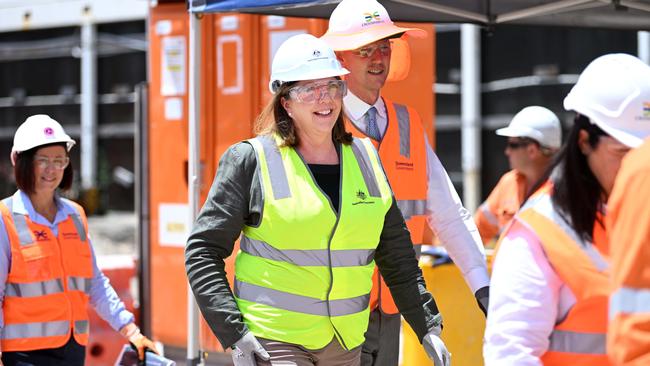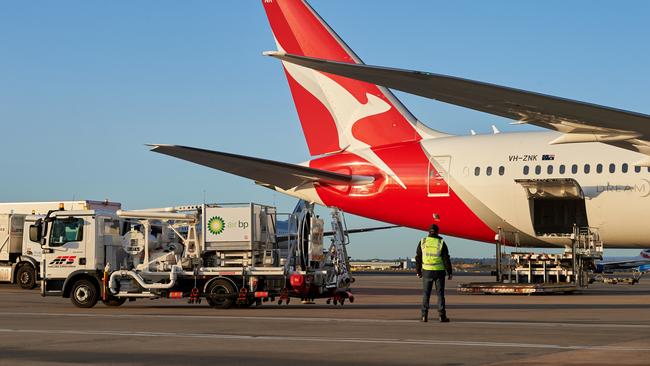Jet Zero Council is about to meet for the first time but critics query its leadership and time frame
The first Jet Zero Council meeting threatens to undermine its own ambitions by flying dozens of people from around the country to Brisbane for a two-hour gathering.

Concerns have been raised about the seriousness of a “Jet Zero Council” after an agenda was circulated to members revealing just two hours has been set down for its first meeting.
The federal government has established the council in an effort to steer the aviation industry towards its goal of net zero carbon emissions by 2050.
Transport Minister Catherine King has been appointed chair of the council, and according to the terms of reference will provide co-ordinated advice on its progress – to herself.
The 14 organisations represented on the council include airlines, airports, manufacturers, research bodies, defence and fuel, and finance companies – most of whom will fly to Brisbane on Tuesday for the two-hour meeting.
In that time frame, the council is expected to work through seven agenda items, including “updates and observations” from each organisation represented.
That will be followed by a presentation on the CSIRO and Boeing’s 144-page sustainable aviation fuels road map.
Then members will take part in discussions on a work plan identifying six priority items.
These include setting up a national framework so travellers can volunteer to pay for their own sustainable aviation fuel, in the same way as airline customers can opt to offset their flights.
“Building SAF literacy and social licence” was another priority, seen as essential for the growth and adoption of the industry.
“Educating the public, feedstock producers, the investment community and businesses about the potential of SAF and other lower carbon aviation propulsion technologies will assist in building the social environment and public confidence necessary to support the transition to net zero,” the work plan said.
“This would help dispel misinformation, guard against perceptions of greenwashing and showcase the inherent safety and sustainability of new technologies and the commercial opportunities available.”

The terms of reference allow for just two meetings a year to take place, and no one other than Ms King is allowed to speak on, or represent, the council without her permission.
In the event the code of conduct was breached, Ms King could remove the person from the council, and ask for that organisation to appoint another representative.
A source close to the council said the size of the challenge facing members was not really reflected in the time allocated for the meeting, or the “last minute” distribution of many pages of agenda items on Friday.
However, the source and others on the council said it was still the best chance of progressing to aviation’s net zero target and establishing a significant SAF industry.
Ms King previously surprised aviation industry leaders by suggesting high speed rail along the east coast would “get planes out of the sky and decarbonise aviation”.
It was then left to her spokeswoman to state the minister’s commitment to the aviation industry.
“Plane travel is the way Australians connect with countries and people overseas,” the spokeswoman said.
Qantas and Virgin Australia have both publicised emissions reduction targets on the way to “net zero” by 2050.
Qantas has partnered with Airbus to try to generate interest in domestic SAF production, with the help of a $400m fund.
And Virgin Australia recently signed a memorandum of understanding with Boeing targeting closer US-Australia clean energy co-operation, and a local SAF industry.




To join the conversation, please log in. Don't have an account? Register
Join the conversation, you are commenting as Logout